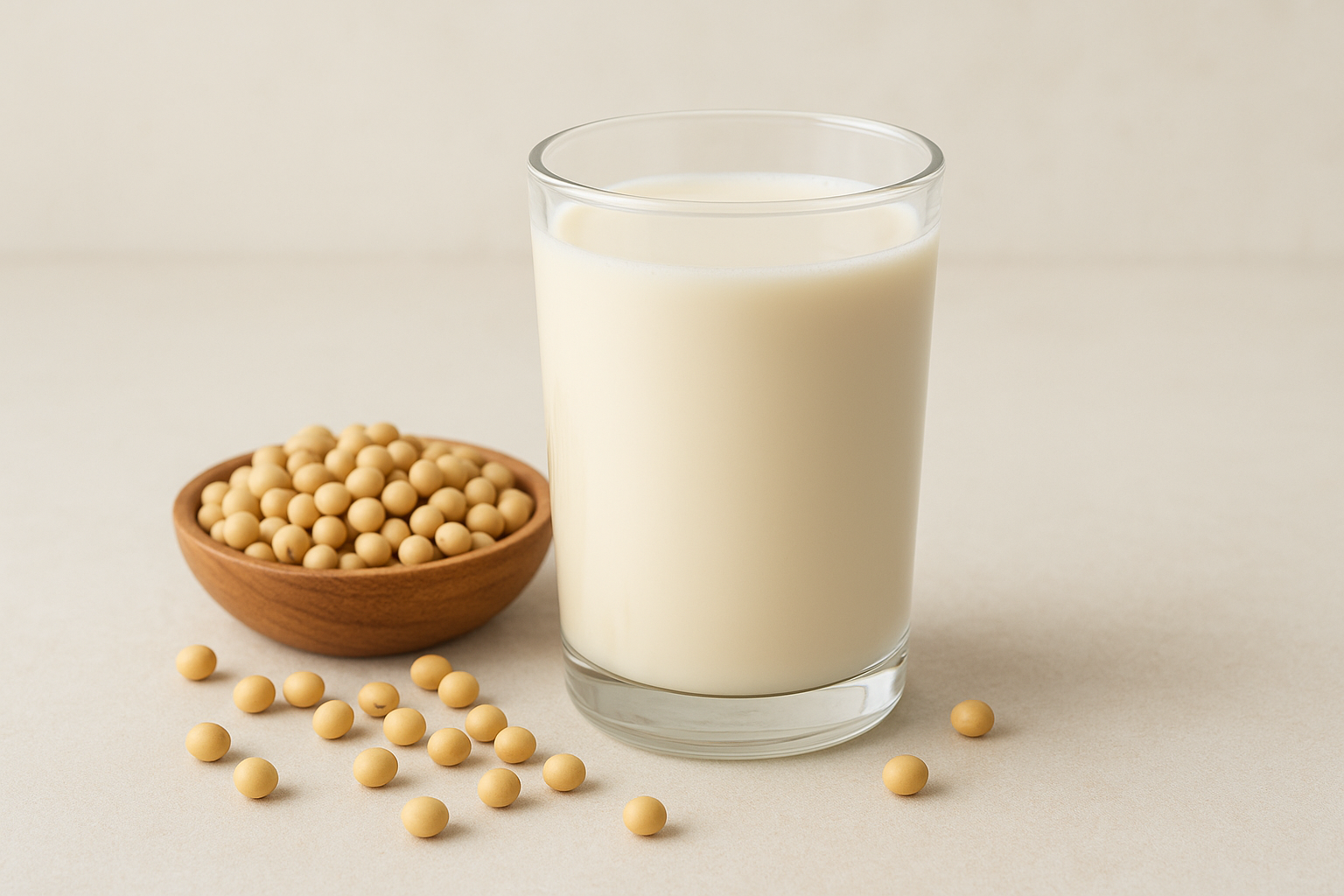Soybeans contain isoflavones, a plant-based compound structurally similar to the sex hormone estrogen. Isoflavones also have antioxidant properties, neutralizing free radicals (molecules that can damage DNA and increase cancer risk). The isoflavones in soy milk play a vital role in protecting the body from inflammation, reducing the risk of chronic diseases.
Soy milk can improve cholesterol levels thanks to its high plant protein and isoflavone content. This beverage is cholesterol-free, low in saturated fat, and rich in unsaturated fats and essential amino acids beneficial for cardiovascular health.
Soybeans can help lower blood pressure through their isoflavone content. This nutrient promotes blood vessel relaxation and expansion, reducing pressure on artery walls. Compounds in soybeans also limit chronic inflammation, a contributing factor to cardiovascular problems, including high blood pressure.
 |
Soybeans contain many nutrients that are good for overall health. Image generated by AI |
Soybeans contain many nutrients that are good for overall health. Image generated by AI
Soybeans help maintain a healthy weight due to their rich protein source, which creates a feeling of fullness and reduces calorie intake. Consuming protein from soybeans also improves insulin resistance, a condition where the body doesn't respond effectively to insulin to absorb blood sugar. With its low carbohydrate content, whole soybeans have a low glycemic index (GI), making them a healthy choice for people with diabetes.
Soy can alleviate menopausal symptoms thanks to its isoflavone content, which has estrogen-like properties. Isoflavones can bind to estrogen receptors in the body, helping to balance hormonal changes during menopause and preventing fatigue, mood swings, hot flashes, and bone loss. The decline in estrogen during menopause accelerates bone loss compared to bone formation. Consuming soy products can reduce the risk of osteoporosis in women.
Except for those with allergies, soy is considered a safe addition to the diet. However, soy contains insoluble fiber, which can cause bloating and diarrhea. The fibers raffinose and stachyose can exacerbate irritable bowel syndrome (IBS), a common digestive disorder.
Soy products may inhibit thyroid function in some individuals, contributing to hypothyroidism. People with thyroid conditions should consult their doctor before consuming soy regularly.
Le Nguyen (According to Very Well Health)
| Readers can submit their nutrition questions here for doctors to answer. |












